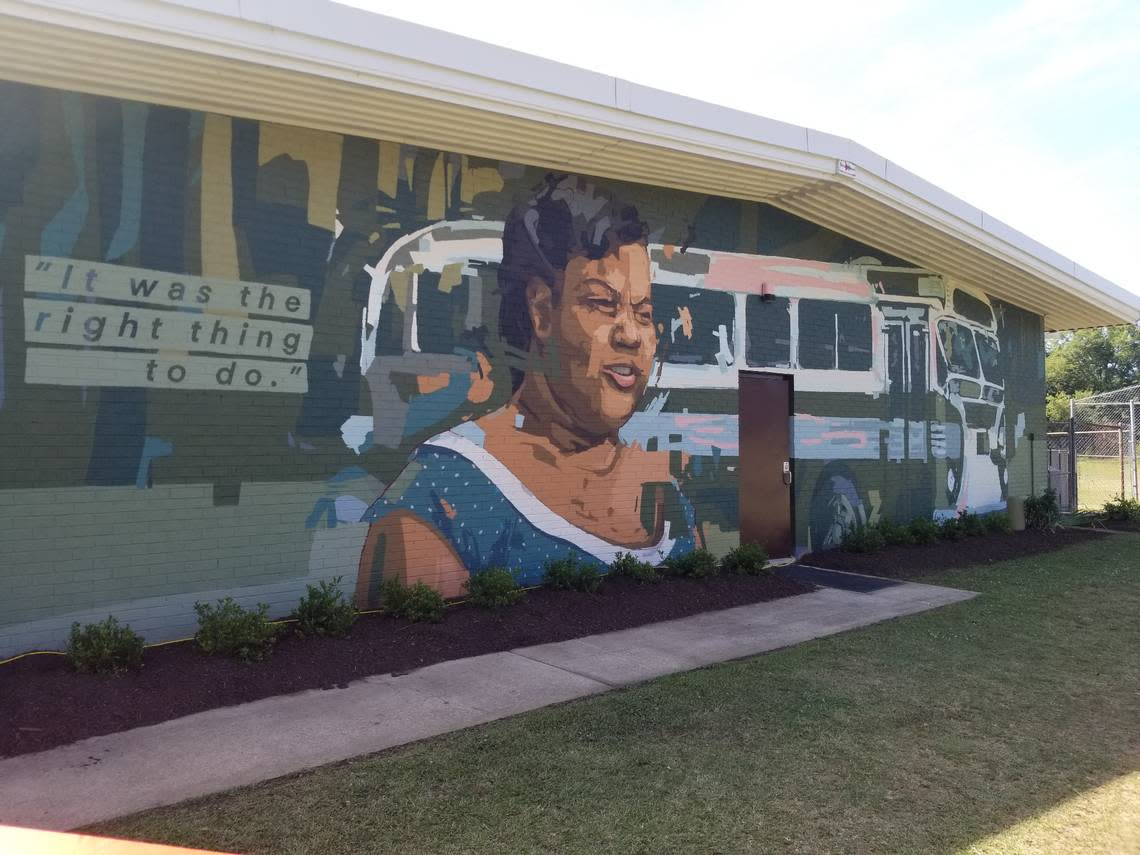Black history is South Carolina history and it must be taught | Opinion

Every February, we pause to shine a brighter light and celebrate the contributions made by Black Americans every day and everywhere across our nation.
Of course, it wasn’t until a bill drafted by State Sen. Darrell Jackson finally passed the General Assembly in March 2012, that the Palmetto State finally officially recognized African American History Month.
Interesting.
It’s almost as if some folks were trying to ignore those contributions and rewrite that history. But they wouldn’t do that, would they? I mean, they must know that Black history is South Carolina history. They must remember the truth. After all, we do.
We remember Sgt. Issac Woodard Jr., the decorated World War II veteran, mercilessly beaten and blinded by officers with the Batesburg Police Department and Police Chief Lynwood Shull, on February 12, 1946. We remember George Elmore, the Black business owner and entrepreneur who lost everything to strike down the all-white primary system here in South Carolina and across the nation. We remember Sara Mae Flemming, who fought segregated city buses more than a year before Rosa Parks. We remember Briggs v. Elliott setting the cornerstone of the Supreme Court’s decision in Brown v. Board of Education.
We remember “The Mother of the Movement” Septima Clark and Mary McLeod Bethune, the slave’s daughter who rose to advise President Franklin Roosevelt. We remember Ronald McNair and Modjeska Monteith Simkins, the Tuskegee Airmen and the Friendship Nine. We remember the tide of American history that flowed through the slave ships docking in Charleston whose current drives from the landmark elections of I.S. Leevy Johnson, Herbert Fielding, and James Felder to Congressman Jim Clyburn and President Barack Obama.
So, let’s be honest, South Carolina’s history is Black history and vice-versa. They are indivisible. So why do some folks try so hard to divide them?
Of course, those who champion this effort to suffocate parts of history like to pretend that they’re actually trying to preserve history and use terms like Critical Race Theory (CRT) to frighten us. The truth is that, while it’s been around since the 1970s, most of us don’t even know what CRT is. But they want us to believe that, somehow, this postgraduate level curriculum is being taught in our K-12 classrooms.
Nevermind the fact that the GOP-controlled legislature would have to approve it, someone would still have to teach it and that would be like asking a high-school chemistry teacher covering two classes at once to build an unlicensed nuclear reactor during his/her lunch break. It’s just absurd.
But that’s not what the anti-CRT politicians are upset about. They’re upset because some high school student might stumble across an old copy of Uncle Tom’s Cabin and actually read it. They’re scared that our kids might learn about the systematic intimidation and suppression of Black voters, Ben Tillman and Gray’s Red Shirts, how our state unjustly executed a 14-year-old Black child named George Stinney or how state troopers opened fire on Black demonstrators in the Orangeburg Massacre.
That’s not Critical Race Theory. That’s just history.
That’s why I agree that we do have a critical race problem in South Carolina…and that’s no theory.
So when a bill passes the SC House that gives parents the ability to sue schools and teachers who dare to educate our students on our actual history, we have to ask ourselves, “Whatever happened to expanding our history instead of shrinking it?”
The fact is that, like my grandparents used to say, you can’t get where you’re going if you don’t know where you’ve been. So how can we move forward unless we tell the stories — all the stories — of how we got where we are? Yes, some of that history is disturbing, uncomfortable or downright shameful.
But we don’t learn anything by handpicking our past. That’s teaching cowardice, not history.
Antjuan Seawright is a Democratic political strategist, a CBS News political contributor, and a senior visiting fellow at Third Way.
